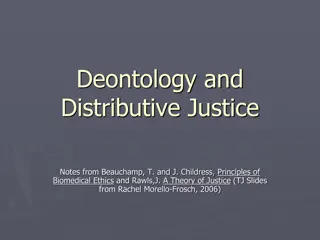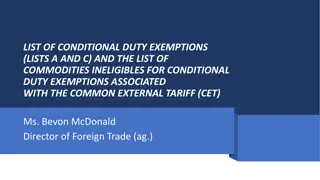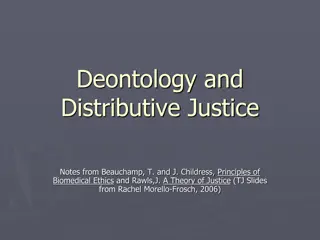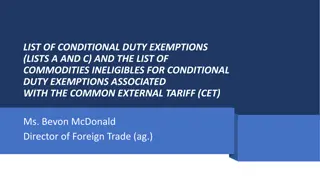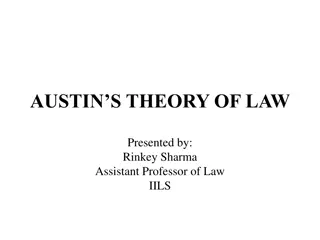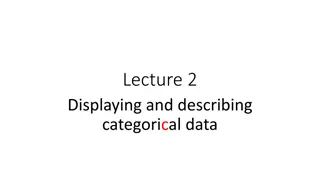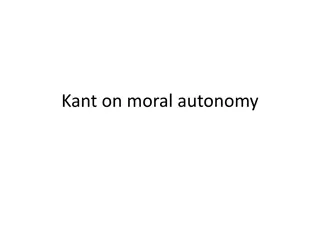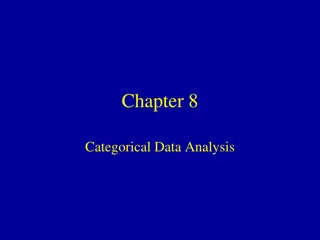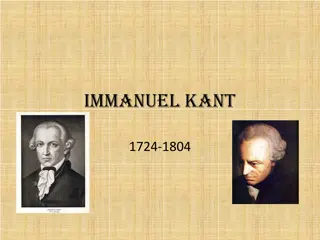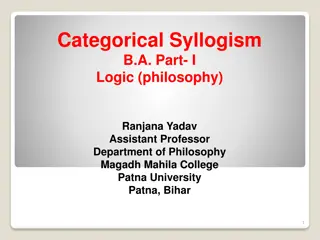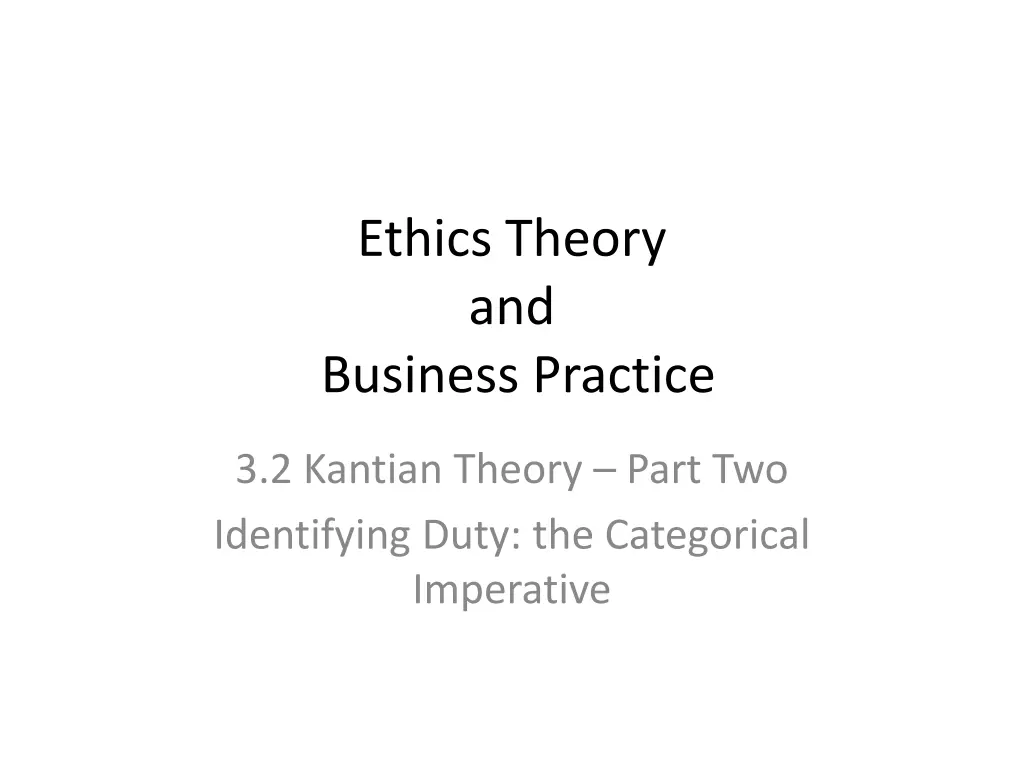
Identifying Duty: Kantian Ethics in Business Practice
Explore Kant's Categorical Imperative, which provides a framework for identifying duty in business ethics. Discover the three formulas of the imperative and how they guide ethical decision-making. Learn how to apply the Formula of Universal Law and delve into the practical questions it poses.
Download Presentation

Please find below an Image/Link to download the presentation.
The content on the website is provided AS IS for your information and personal use only. It may not be sold, licensed, or shared on other websites without obtaining consent from the author. If you encounter any issues during the download, it is possible that the publisher has removed the file from their server.
You are allowed to download the files provided on this website for personal or commercial use, subject to the condition that they are used lawfully. All files are the property of their respective owners.
The content on the website is provided AS IS for your information and personal use only. It may not be sold, licensed, or shared on other websites without obtaining consent from the author.
E N D
Presentation Transcript
Ethics Theory and Business Practice 3.2 Kantian Theory Part Two Identifying Duty: the Categorical Imperative
aims to explain three formulas that Kant suggested we might use to identify our duty to explain why Kant thought we have a duty to develop ethical sentiments
how do we go about identifying our duty? the categorical imperative
categorical imperatives an imperative: an authoritative command that tells us what we ought to do a categorical imperative: an authoritative command that reason tells us we ought to do and since it is what reason says we should do, we should do regardless of what sentiment may tell us to do
three formulas of the categorical imperative (i.e. three ways of working out what is our duty): 1. the formula of universal law 2. the formula of the end in itself 3. the formula of universal acceptability
1. the formula of universal law Act only on that maxim through which you can at the same time will that it should become a universal law. (Kant, 1948/1785: 84/52) to will something to happen = to want that thing to happen a maxim = a principle upon which a person acts
in other words only act on a principle (a maxim) if you can rationally want (will) everybody else to act on the same principle
putting the formula of universal law in to practice ask yourself five questions: Question 1: what am I trying to achieve by my action? Question 2: what is the maxim upon which I am acting? Question 3: what would universal adoption of my maxim consist of? Question 4: what would be the eventual result of universal adoption of my maxim? Question 5: how would this result affect my success in achieving what I am trying to achieve?
theory in practice the formula of universal law and movie piracy
2. the formula of the end in itself Act in such a way that you always treat humanity, whether in your own person or in the person of any other, never simply as a means, but always at the same time as an end. (Kant 1948/1785: 91/66 7)
means and ends to treat someone as a means to an end is to value that person only insofar as they help you to achieve some further end that you happen to value i.e. to use that person to treat someone as an end is to treat them as having value in their own right i.e. to respect the dignity that person merits as a rational, free being
is the formula of the end in itself realistic in business? don t businesses use all their stakeholders as a means to the end of making profit? but Kant does not preclude treating people as a means to en end only treating them simply as a means to an end i.e. businesses can use people as long as they also treat them as an end in their own right
theory in practice suppliers: simply a means to an end; or an end in themselves?
3. the formula of universal acceptability when we act we should imagine ourselves making a universal law that all others are subject to we should only subject people to laws that they are happy to be subjected to therefore, we should only act on laws that we believe all others would be happy to be subjected to
the New York Times test in general, if you don t want to read about it in The New York Times, you shouldn t be doing it (Trevino and Nelson, 2004: 99)
theory in practice would UK water companies have wanted everyone to know what they were doing?
perfect duties and imperfect duties a perfect duty is a duty to which, under any circumstances, one is bound an imperfect duty is a duty that we should fulfil wherever practically feasible, but not necessarily all the time
the application of reason we can work out our perfect duty using reason by applying the categorical imperative we can also work out our imperfect duty using reason
an example of imperfect duty I sometimes have a need of other people s kindness therefore, it is reasonable for me to want people to be kind to one another therefore, it is reasonable for me to be kind to other people therefore, I have an imperfect duty to be kind wherever can www.youtube.com/watch?v=Ydy1HiZ-Vio
an ethical act is one that is performed out of a reason-basedsense of duty we also have an imperfect duty to develop sentiments such as kindness and benevolence we identify perfect duty using the categorical imperative 1. the formula of universal law 2. The formula of the end in itself 3. The formula of universal acceptability
key points the three formulas of the categorical imperative can help us to work out what is our reason-based duty we also have an imperfect duty to develop and express sentiments that we may need others to express towards us
references Kant, I. (1948/1785) Groundwork to the Metaphysic of Morals , H. J. Paton (trans. and ed.), The Moral Law:Kant s Groundwork to the Metaphysic of Morals. London: Hutchinson. pp. 51 123. Trevino, L.K. and Nelson, K.A. (2004) Managing Business Ethics: Straight Talk About How To Do It Right (3rd edn). Hoboken, NJ: Wiley.


